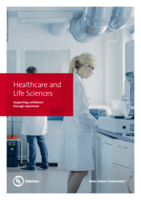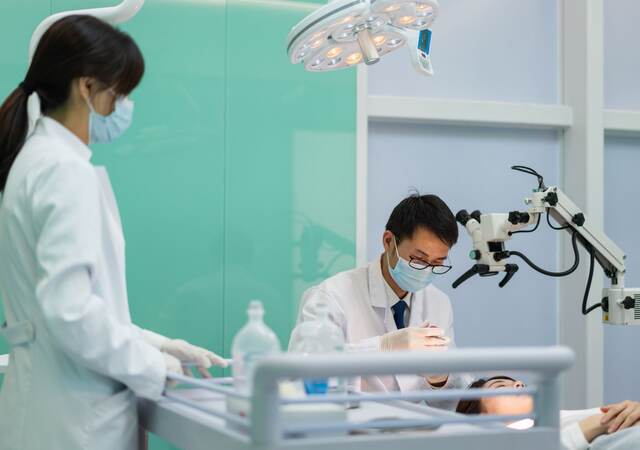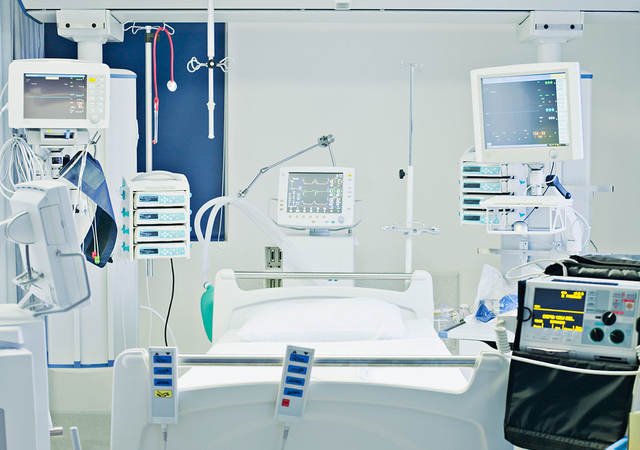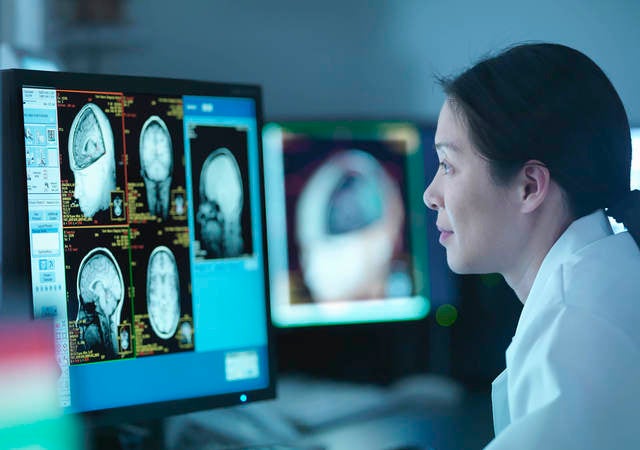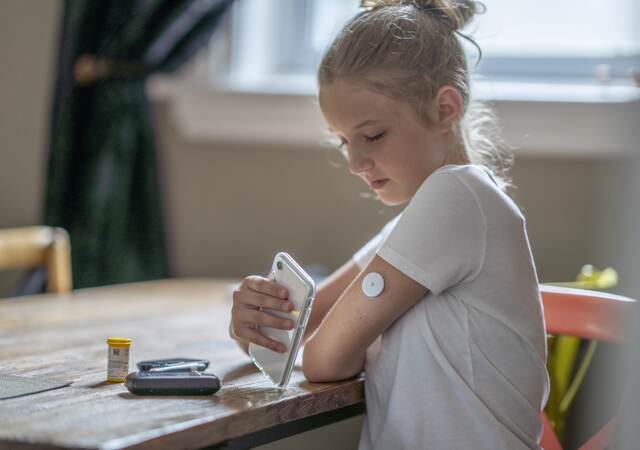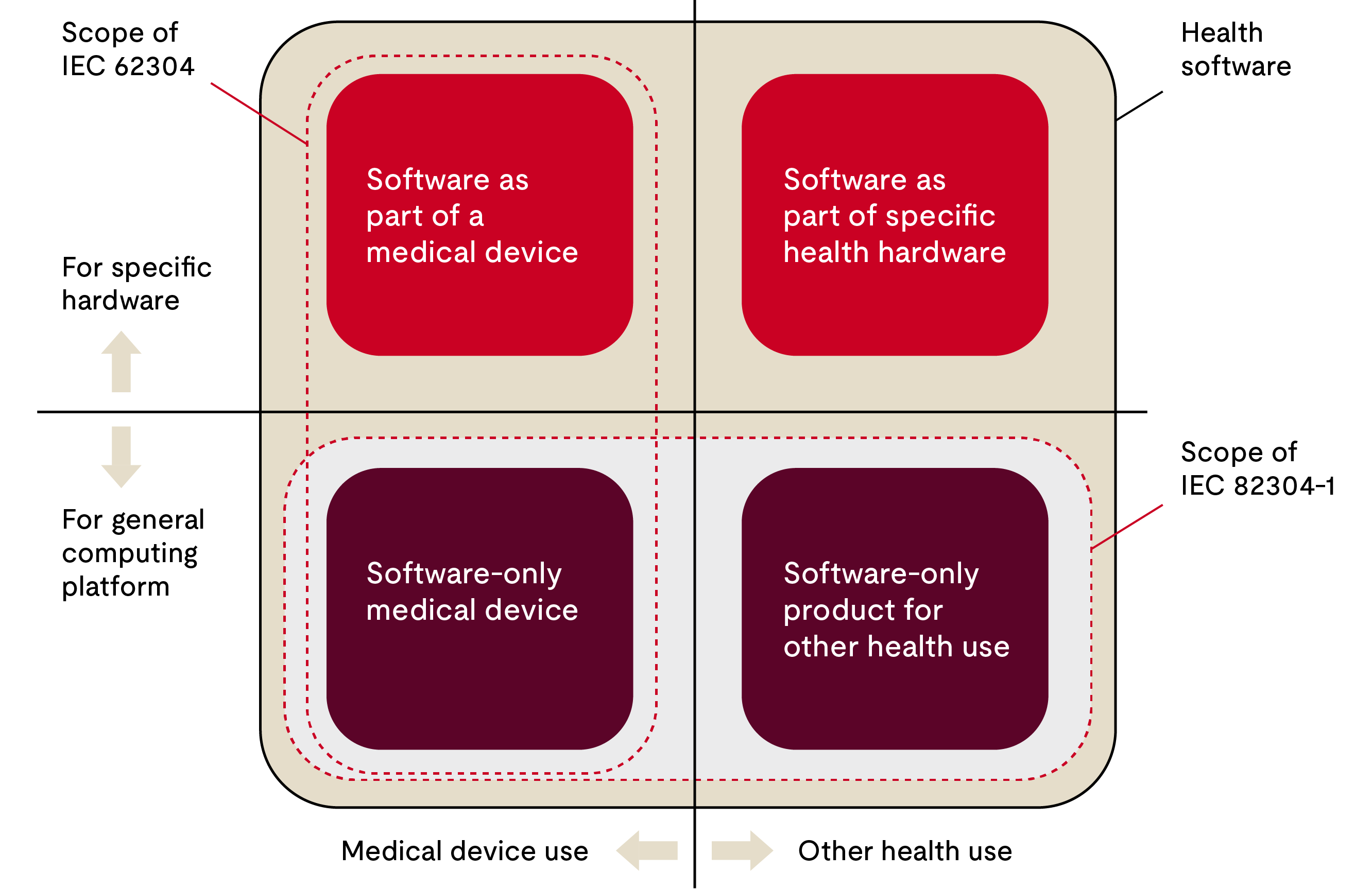
With the increasing popularity of smart medical devices and digital healthcare, driven by artificial intelligence, the Internet of Things, and big data, the healthcare industry has entered a new era surrounding the rapid development of healthcare software and applications.
Telemedicine, mobile healthcare, and smart healthcare all rely on feature-rich software. Whether it is a health software/app that collects users' blood pressure, blood sugar and other data, or remote control of medical equipment for diagnosis and treatment, as well as the hospital's electronic medical record system/information management system, they are included in the scope of health software. Software as a Medical Device (SaMD) is a health software that is not intended to run on a dedicated hardware device.
Whether it is SaMD or health software, the development process and safety requirements need to be defined "in advance" by appropriate standards. For manufacturers, the entire life cycle of software needs to be considered, including product design, development, installation, verification, validation, maintenance, and processing, etc. The level of impact on patient or public health must be considered during the life cycle of the product and whether software as a medical device is treating/diagnosing or informing on clinical decision.
In fact, there are significant differences between SaMD and health software under the framework of regulatory requirements, including whether the actual software manufacturer is a medical device manufacturer in the strict sense or a general software manufacturer, as well as the intended use, intended environment, and usage scenarios.
According to IEC 82304-1, health software can be roughly divided into the following four categories:

Manufacturers need to ensure the implementation of the following actions at all times (including but not limited to):
- Establish the intended use of health software.
- Perform an initial risk assessment / Risk categorization framework.
- Determine use requirements and a validation plan.
- Identify system requirements.
- Develop and release verified health software.
- Finalize accompanying documents.
- Validate health software products and create a validation report.
- Design software maintenance and other post-market activities and maintain health software.
How we can help you
We can provide evaluation and certification services for SaMD and health software to key industry standards:
- IEC 82304-1
- IEC60601-1 part 14
- IEC 62304
These new services offer a certification option for SaMD and health software products, thereby demonstrating safety and efficacy of these products. Depending on the intended use, the connected hardware that hosts the SaMD may or may not be a part of the certification.
Obtaining independent third-party certification for your products can help you boost your brand reputation and increase consumer confidence, as it demonstrates your commitment to product safety and quality:
- Product evaluation and certification are essential components of the quality assurance process.
- Safety Assurance: Ensuring the safety of products is paramount. Evaluation and certification help identify potential hazards, mitigating risks and protecting consumers from harm.
- Regulatory Compliance: subjected to specific regulations and standards set by government agencies or industry bodies.
- Evaluation and certification ensure that manufacturers meet these requirements, avoiding legal issues and market access barriers.
- Quality Validation: Through rigorous evaluation procedures, and qualify standards, surveillances.
- Consumer Confidence: Certified products carry a mark or label indicating compliance with relevant standards. This empowers consumers to make informed purchasing decisions.
Why partner with UL Solutions?
Dedicated to healthcare industry innovation, we leverage decades of technical, regulatory and clinical expertise to help you manage regulatory challenges and bring safer products to market faster.
Our experts work closely with standards committees to stay up to date on all the new amendments and upcoming changes. These committees include the American National Standards Institute (ANSI), the Association for the Advancement of Medical Instrumentation (AAMI) and the International Electrotechnical Commission (IEC). UL Solutions has several testing laboratories globally.
We provide a single source for your needs, helping you save time and money. Our comprehensive suite of services includes end-product testing, certification, validation (EMC, wireless, safety, interoperability, cybersecurity, biocompatibility), and Global Market Access.
To learn more, contact us.
Get connected with our sales team
Thanks for your interest in our products and services. Let's collect some information so we can connect you with the right person.


